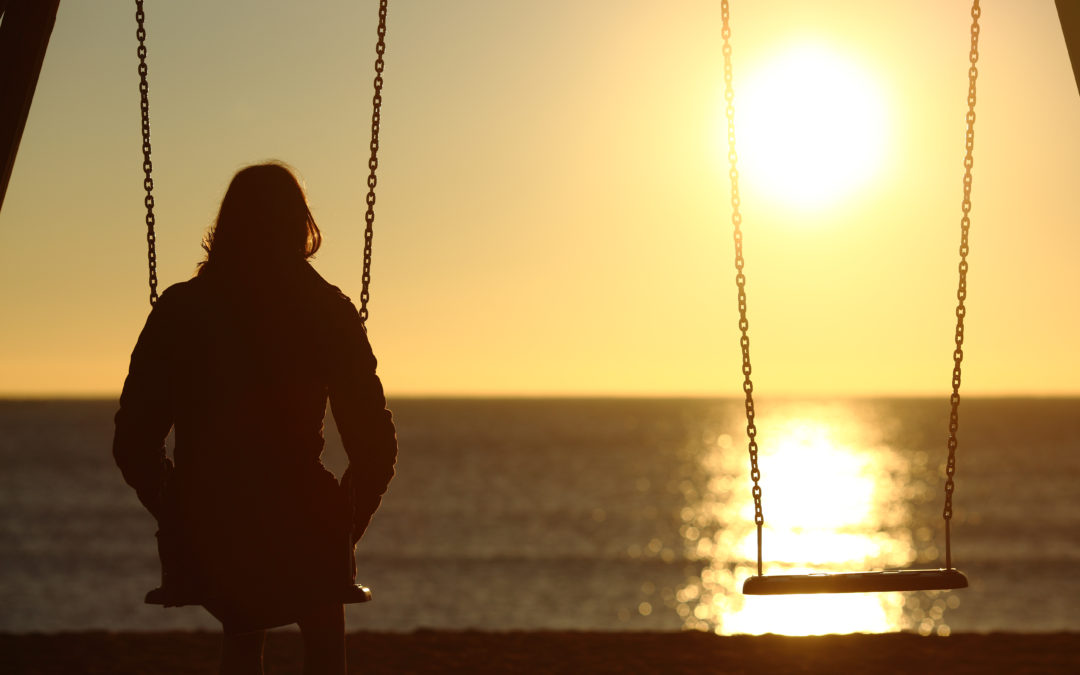OK, so maybe legally that is what I am…and it is the box I have to check on forms at the doctor’s office or on a credit application for “marital status”. But I really HATE the word.
Interestingly enough, I decided to see why I maintained such an anathema for this word. After all, it is commonly accepted as what society calls a woman whose husband has passed away (or, jokingly, one who has lost her husband to an activity, as in “she is a golf/football/poker widow”). But to me, this word conjures up nothing but loneliness, isolation, grief and despair. And while I may suffer from any and or all of those states of being from time to time, I do not let any or all of them define me…therefore, I choose to reject the appellation.
The etymology of the word “widow” appears to come from the Old English widewe, from an Indo-European root meaning “be empty“; compared to the Sanskrit vidh, “be destitute”, the Latin viduus, “bereft” and the Greek eitheos, “unmarried man” (ok, so clearly the latter has been adapted…) As I said, each of these roots imply total despair.
Historical treatment of the Widow
Fast forward to the Old West – the “Widow Jones” was considered needy, incapable and oftentimes incredibly available since she would benefit from having a “man around the house”. She was often portrayed as homely (although several movies and tv series cast prettier and younger women to play the poor lonely lady).
Many widows in certain ethnically traditional societies wear black for a year. The widow’s peak in a hairline is derived from English folklore as a sign that a woman would outlive her husband. Architecturally speaking, the widow’s walk is a railed rooftop platform often with a small enclosed cupola frequently found on 19th-century North American coastal houses. Michener wrote that the term derived from the romantic tales of those loyal women who continued to keep watch for a ship that had long gone to the bottom of the coral reef.”
The Widow as a Pariah?
In today’s society, being a widow is often viewed as some kind of contagious disease. Often, widows are excluded from dinner parties or other events where they may be perceived as a threat to the happily married women at the table. They are often seen as being on the prowl, or as being so sad and depressed that they will bring everyone with whom they come into contact down. Despite all of the progress women have made toward equality, there is a huge disconnect between the way men who have lost their wives are treated – they are catered to, brought food, introduced to eligible ladies, and just not deemed as big a threat as the poor widow-lady.
NOT ME!
Someone once defined the stages of being a widow as “grief, growth and grace”…I would add a fourth “g” to that – gratitude. It has been over two years since I lost my Tom. The grief will always be part of me, but hopefully I have grown as my own person in the past two years…and, hopefully I have done so gracefully. I am eternally grateful for the nearly 40 years I had with him, and I truly believe that my growth has been in part derived from his support of me as my own person over those 40 years and his advice, his strength, his perspective…all of which are part of me now and forever.
While I will always consider myself married to Tom, now in spirit since no longer in body, I am an independent woman who will not be defined by any single noun, but especially not one that means “empty” – I am filled with love (past and present thanks to my family and some friends), memories and, when not overly tired (and when the world opens up again), the hope for many new experiences. To continue to grow and learn and experience life and not be defined by my loss.
My life is not empty – I am not a widow – I lost my spouse…but I am, more simply…ME. Be that mom, grandma, sister, cousin, aunt, friend, writer…SURVIVOR.

